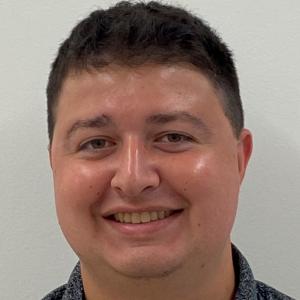About Us
The Sanders Lab studies Parkinson’s disease (PD), the most common neurodegenerative movement disorder. Even with expert treatment, PD patients typically deteriorate over time and endure considerable motor and non-motor disability. There are no disease modifying therapies, thus, this is an urgent unmet medical need. We take a translational approach (i.e. bench-to-bedside), aiming to translate our multidisciplinary basic scientific research into meaningful health outcomes for PD patients. To do so, we combine all levels of analysis, from neurons in a dish to human studies. We have adapted, developed, and are continuing to create and apply novel methods and technology for PD mechanistic investigation. Our primary focus is on the role of genome integrity and DNA repair in the pathogenesis of PD.
We were the first to show that LRRK2 G2019S mutation carriers have increased mitochondrial DNA (mtDNA) damage using human induced pluripotent stem cells (iPSC)-derived neural cells (Sanders et al 2014). Further, the mtDNA damage phenotype was shown to be caused by the LRRK2 mutations. When the mutations were “corrected” using zinc finger nuclease (ZFN)- mediated gene editing, levels of mtDNA damage returned to that of basal control levels. Thus, the mtDNA damage phenotype can be unambiguously attributed to the LRRK2 G2019S mutation. This new link between LRRK2 and mtDNA damage opens up an entirely original line of investigation into the pathogenic mechanisms of LRRK2-related PD. Our current work focuses on the underlying mechanisms of LRRK2-induced mtDNA damage, dysfunction and neurodegeneration.
We also found selective mtDNA damage as a molecular marker of vulnerable nigral neurons in sporadic PD. We are able to detect mitochondrial abasic sites (with brain region and cell type specificity) in multiple pre-clinical models of PD and in human PD postmortem brain tissue (Sanders et al 2014). We are interested in pursuing the underlying DNA repair defect in PD and applying novel therapeutic approaches targeting genome integrity.
There are no peripheral biomarkers for PD. The identification and validation of high throughput biomarkers to measure disease progression (as well as identify pre-clinical disease onset) is critical to the development of disease-modifying or even preventative therapies. We are investigating and defining peripheral biomarkers for PD.
Recent Publications
Read a complete list of Dr. Sanders' publications on PubMed.
Our Team
Career Opportunities
The Sanders group is always looking for interested, talented members for our team. Please email Dr Sanders at laurie.sanders@duke.edu to learn more about open positions.









